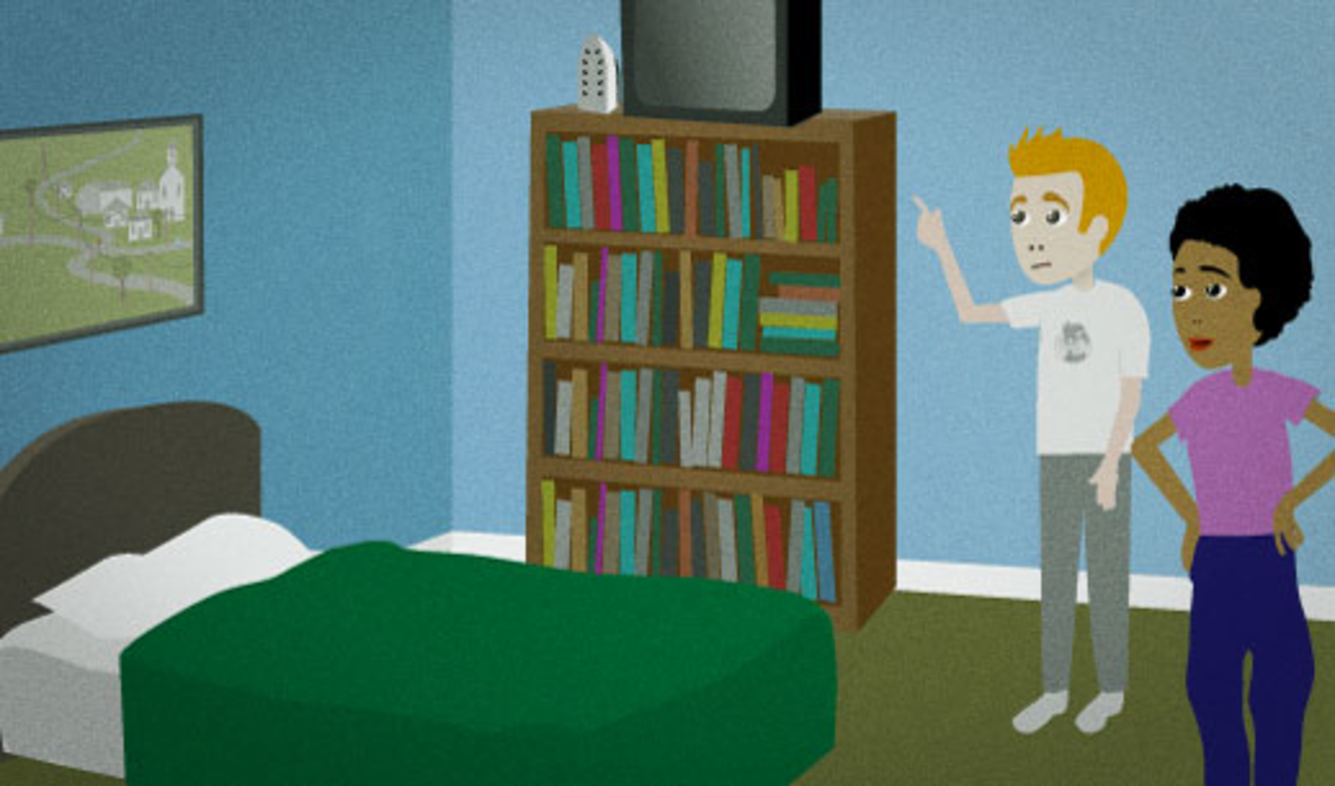“I'm a little worried about what would happen if we were to have an earthquake.”
In your apartment, you have a tall bookshelf set up near your bed with some heavy boxes on top of it. Earthquakes aren't common in your area, but you're worried that the boxes would fall and hurt you if one happened. You communicate this fear to your wife.
I'm a little worried about what would happen if we were to have an earthquake.
Want Video and Sound? Follow us on YouTube

what would happen if (something) were to (happen)
This is a way of talking about an imaginary situation.
Another, simpler way to express the same idea is this:
I'm a little worried about what would happen if we had an earthquake.
Adding "were to" makes the sentence sound less realistic. So in this sentence:
What would happen to the kids if we were to die in an accident or something?
...the speaker doesn't expect to get in an accident; it's just a hypothetical (imaginary) situation.
we have/had an earthquake
Here is the most common way to talk about a natural disaster like an earthquake:
There was an earthquake.
But this is another common expression:
We had an earthquake
Here are some more examples with other disasters and weather events:
Do you remember the big hurricane we had back in '75?.
They had a thunderstorm last night.
